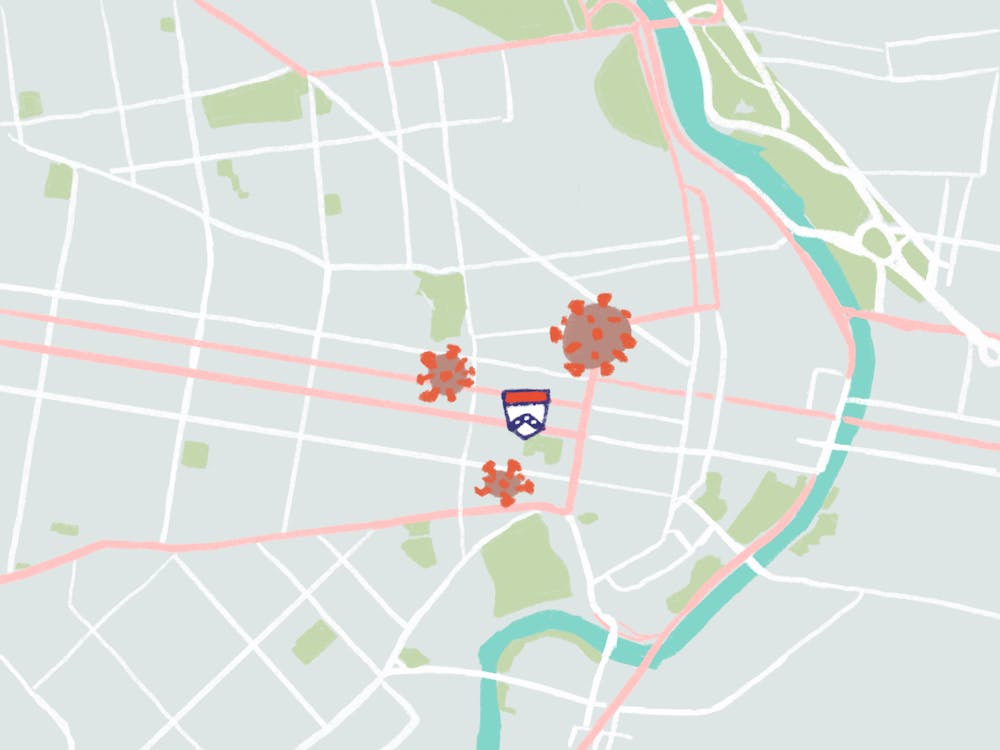As COVID-19 continues to threaten those in the Philadelphia area and beyond, many West Philadelphia residents are concerned about Penn’s decision to bring students back to campus this semester. These concerns are not unfounded; a study from the Centers for Disease Control and Prevention found that counties containing large colleges open for in-person instruction last fall experienced significant increases in COVID-19 cases. More disturbingly, a New York Times analysis found that COVID-19 related deaths in communities with large college populations have risen faster than in the rest of the United States. With the increasing danger posed by new COVID-19 variants and reports that Penn students are already failing to follow health guidelines, the return of thousands of students to campus has the potential to fuel outbreaks that extend far beyond campus.
The University must recognize that its decision to reopen campus housing does not affect the campus community alone, but also has an impact on West Philadelphia. As such, Penn has an increased responsibility to support the health of West Philadelphia residents amid the risks of students returning to campus.
To mitigate the potential harms of bringing students to campus, Penn should expand COVID-19 testing availability for vulnerable populations in the surrounding community. While Penn students, faculty, and staff benefit from frequent, rapid, and accurate COVID-19 testing, this is not necessarily available to West Philadelphia residents. Penn Medicine has already taken steps in this direction by establishing or supporting several COVID-19 testing sites throughout Philadelphia. Among these, however, only Sayre Health Center offers testing for asymptomatic individuals. Expanding asymptomatic community testing, especially in West Philadelphia, could help residents protect themselves and their families from the COVID-19 risk students inherently pose. While testing alone would not solve the problem of student-driven community spread, it could help reduce harm and provide meaningful support to the West Philadelphia community.
Penn should also create a more accessible way for West Philadelphians to report student violations of COVID-19 guidelines. Because many residents and business owners have Penn students as their neighbors and customers, they will likely witness violations of Penn’s Student Campus Compact. Currently, noncompliance with the Compact can be reported through an online form that accepts responses from faculty, staff, parents, students, and “other,” a category which encompasses West Philadelphia residents. However, it is likely that many people living near Penn’s campus are not aware that they can report student behavior violations themselves. To deal with this issue, Penn should publicize information about how to report Compact noncompliance, perhaps through informational bulletins in local businesses, community forums, or public spaces adjacent to campus. Penn should also create additional mechanisms, such as an anonymous hotline, for concerned West Philadelphians to report irresponsible behavior.
Many West Philadelphia residents were caught off guard by Penn’s decision to bring students back to campus this spring, and some were even unaware that the change had taken place. Before making future decisions, Penn should make sure to meaningfully account for the perspectives of the local community. The University should hold open forums for community members to address concerns, solicit feedback from local residents and business owners, and establish a community-oriented website with up-to-date information on Penn’s policies and how they might affect the people of West Philadelphia. Other colleges have already started taking initial steps. For example, Swarthmore College’s president released a letter to local residents explaining the campus COVID-19 policies and strategies to reduce community transmission. To promote transparency, Penn must pursue similar lines of communication with the local community.
Penn’s decision to bring students back to campus generated negative reactions from many West Philadelphia residents. To mitigate the damage, the University must take steps to increase access to medical care, allow open communication, and solicit genuine feedback from the surrounding community.
Editorials represent the majority view of members of The Daily Pennsylvanian, Inc. Editorial Board, which meets regularly to discuss issues relevant to Penn's campus. Participants in these meetings are not involved in the reporting of articles on related topics.
SEE MORE FROM THE DAILY PENNSYLVANIAN EDITORIAL BOARD:
First-year students: Coming to campus isn’t an excuse to party
SEE MORE FROM THE DAILY PENNSYLVANIAN EDITORIAL BOARD:
First-year students: Coming to campus isn’t an excuse to party









